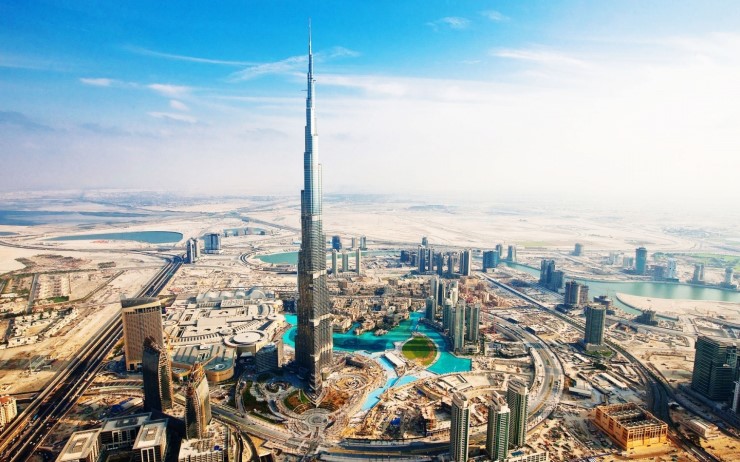How to Immigrate to Dubai – A Quick Guide 2024
Move To Dubai Easily
Immigrating to Dubai, the crown gem of the United Arab Emirates, is a huge adjustment, especially for those who are unprepared for a completely new culture; after all, there are many startling changes to overcome, such as local traditions, language, climate, and religion. Visitors will find Dubai to be a very warm and pleasant town, since it boasts one of the highest expat rates in the world. It’s also a lot less expensive than its reputation may suggest. Keep reading to learn how to immigrate to Dubai.
Dubai As A Destination Hub
Since the halycon days of commodities dealing and oil exporting, Dubai’s economy has developed to include financial services, logistics, real estate, construction, hospitality, and tourism.
This diversification, along with Dubai’s strategic position, world-class infrastructure, and “ease of doing business” mindset, has made it a preferred destination for many global firms and employees looking to advance their careers.
How to Immigrate to Dubai

Immigrate To Dubai – Permanent Residency Requirements
It’s critical to find work before moving to Dubai since the first step to living there is to get a residency visa, which then permits you to apply for a work permit. As an expat, you’ll need to show your residence permit whether establishing a bank account, renting a home, or registering a car, so it’s a crucial step to do. You will need to be sponsored by your employer in order to obtain a residence visa. It’s also worth noting that the UAE has numerous different sorts of residency visas.
In general, the employer is responsible for providing all required papers, which include the application form, the sponsored person’s original (and a copy of) passport, passport-sized pictures, the Ministry of Labour’s employment permit, and any other applicable documentation.
Steps To Take On Immigrating to Dubai
The following are the most important steps to take in order to make the transition:
- Obtain a medical examination
- Make an application for a work permit.
- Obtain a residency visa
- Acquire any necessary qualifications for work in the UAE.
- Have a valid passport for at least another 6 months.
Working hours in Dubai
While working hours vary by company, the standard UAE work week runs from Sunday through Thursday, with some retail and other enterprises operating six days a week and shutting just on Fridays (designated as a holy day in the Islamic world).
Typical business hours are 08:00 to 13:00, with a break from 16:00 to 19:00 (when temps calm down), however working days may be shorter during Ramadan. Free Zones may also have different working hours than the rest of the country.
Working Conditions and Benefits in Dubai
The working week in Dubai varies between 40 and 48 hours, depending on the policies of the business.
The majority of firms provide packages that include;
- a baseline wage,
- medical coverage,
- plane tickets for home trips,
- housing provision or allowance, and
- other company-specific bonuses and advantages for expat workers.
- performance-related incentives available in some circumstances, notably in the banking industry.
- Contract employees also get an ‘indemnity,’ which is a payment granted to expatriate workers at the end of their contract. This comes as a token of appreciation for their contribution to the government.
In principle, working part-time or flexible hours is not the norm in Dubai. The majority of people are on full-time contracts in Dubai. Learn more on working in UAE
Property Rental Prices In Dubai
If you’re looking for your own place to stay, keep in mind that most rental houses are only available for a year. The deposit amount is usually determined by the exclusivity of the neighborhood, the level of competition for the property, and, to some extent, your own negotiating abilities. You could even be requested to pay the whole annual rent up front in some situations, however it’s a good idea to hire a professional property manager in such scenarios. This is worth knowing since you want to know how to immigrate to Dubai
Cost of living In Dubai
Despite the fact that property rates in Dubai have decreased dramatically since the 2008 crisis, renting remains a considerable outlay. To live comfortably in Dubai, your lodging costs should not exceed 20% of your yearly net pay, according to most estimates.
Also keep in mind that utility expenditures are rarely included in rental rates. Electricity and water usage expenditures for a small two-bedroom apartment are estimated to be roughly AED 1,200 ($327) per month, while these prices are likely to be significantly higher during the exceptionally hot summer months.
When it comes to food and groceries, the amount you spend will ultimately be determined by your personal purchasing habits. Purchasing local items rather than foreign brands that are exported at a premium is a great way to save money, but you should budget between AED 300 ($82) and AED 1,000 ($272) each week for food.
Fortunately, getting a car from a reliable rental firm in Dubai is not too costly. For example, a Toyota Yaris will cost you at least AED 1,500 ($408) every month, plus an extra AED 400 ($109) for petrol.
Transportation
If you don’t want to drive, Dubai has a fantastic public transportation system. This includes buses, taxis, and water taxis in addition to the state-of-the-art Dubai Metro. However, if you wish to travel to some of the city’s more remote areas, or even make the lengthier drive to neighboring emirates like Abu Dhabi or Sharjah, a car is strongly suggested.
Education
Daycare facilities, nurseries, elementary schools, and the various private institutions that cater to the vast foreign population are all available to working parents in Dubai. In schools with a Western curriculum, primary education expenses vary from AED 20,000 ($5,446) to AED 28,000 ($7,624), while fees for a prestigious international high school range from AED 40,000 ($10,982) to AED 90,000 ($24,506). Many private firms provide packages that cover all or a portion of these tuition payments.
Healthcare Facilities
Dubai has a well-developed health-care system with world-class standards across the board. Residents of the UAE are free (or pay a modest charge) to use public hospitals and clinics, while foreigners can use public hospitals after successfully applying for a health card from the Department of Health and Medical Services (DOHMS).
Cultural Differences in Dubai
Although Islam is the predominant religion in Dubai, the government is far more liberal than in other adjacent emirates. Non-Muslim holidays such as Christmas and Easter, for example, are commemorated by various retail businesses, which provide decorations and meals for these occasions. However, this courtesy should not be taken advantage of, and cultural differences – as well as customs – should be recognized and obeyed in both directions at all times.
This is especially true during Ramadan, when Muslims and non-Muslims alike are required to observe religious practices and refrain from eating, drinking, or smoking in public during the fasting hours.
Despite the fact that Arabic is the UAE’s official language, English is the most frequently spoken language in Dubai. While you can get by without knowing Arabic (most traffic signs are in both Arabic and English, for example), learning some basic Arabic is still a smart idea, especially if you work directly with Emiratis.
Why Immigrate To Dubai?
For many expatriates who want to combine a high quality of life with a stable employment, moving to Dubai is a dream come true. Make use of the information provided above to make living and working in Dubai as pleasurable as possible.
Do you have any experience living or working in Dubai? Let us know about your experiences in the comments area below…
In order not to miss out on prompt updates from careerinfos.com, enter your email address below and hit the subscribe button beneath.
A confirmation link will be sent to your inbox or check your spam mails if its not in your inbox. Make sure you click the link to confirm your subscription in order not to miss any updates from this blog. All comments (related to the post above) should be dropped via the comment section below.




